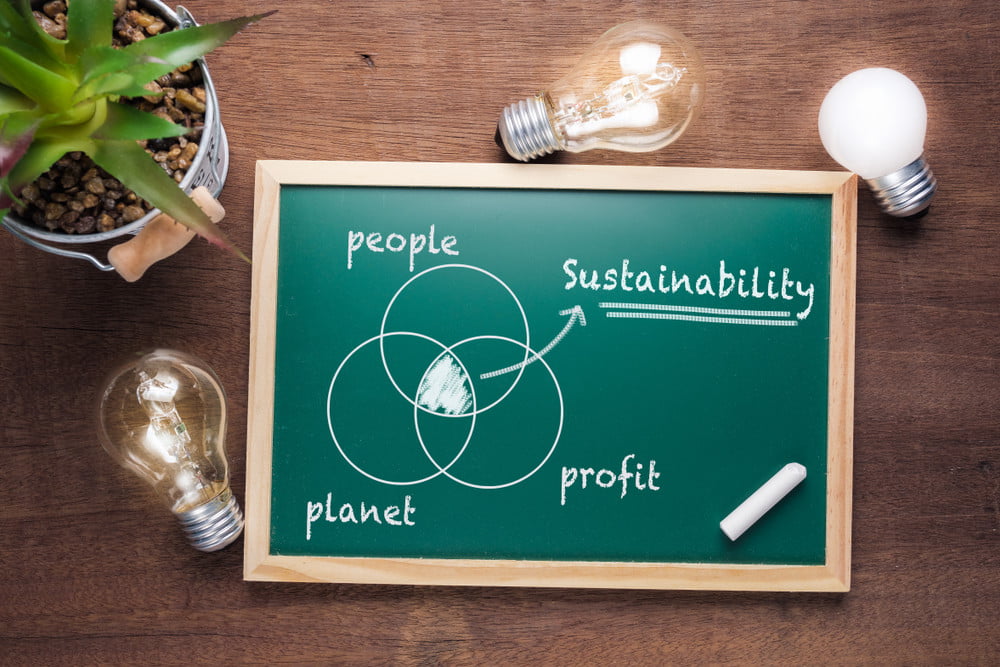Sustainable Finance Practices - Paving The Way For A Greener Financial Landscape
Explore the transformative realm of sustainable finance practices, where financial decisions align with environmental, social, and governance (ESG) criteria. Uncover the impact on global economies, government regulations, and the innovative landscape of sustainable financial products. Discover the future with insights into technology's role and the benefits for investors in this evolving field.
Author:Luqman JacksonReviewer:Liam EvansNov 09, 202327.7K Shares420K Views

In an era marked by environmental consciousness and social responsibility, sustainable finance practiceshave emerged as a powerful force, reshaping the financial industry's landscape. This comprehensive exploration delves into the intricacies of sustainable finance, elucidating its core principles, impact on global economies, and the role it plays in fostering a more environmentally and socially conscious financial sector.
The need for sustainable practices has become more pressing than ever in recent years. The idea of a circular economy has come to light as a viable remedy as the world community struggles with environmental issues and depleting resources.
By placing a strong emphasis on product and material reuse, repair, and recycling, a circular economy seeks to minimize waste, increase resource efficiency, and lessen its impact on the environment.
Although there is no denying the benefits of this kind of economic model, it will take significant financial support to be implemented. At this point, sustainable financing enters the picture and plays a crucial role in facilitating the shift to a circular economy.
Understanding Sustainable Finance
Sustainable finance has emerged as a dynamic and transformative approach to aligning financial activities with environmental, social, and governance (ESG) considerations. This section explores the fundamental principles and key components that constitute sustainable finance, providing a comprehensive understanding of its significance in the contemporary financial landscape.
Defining Sustainable Finance
Sustainable finance is the process of giving environmental, social, and governance (ESG) factors adequate weight when making investment decisions in the financial sector. This results in higher longer-term investments into sustainable economic activities and projects. It has grown into a significant global movement driven by asset managers, institutional investors, and regulators.
Investing in green energy projects and businesses that exhibit social values like social inclusion or good governance, such as having a higher proportion of women on their boards, are examples of sustainable investing.
As per the European Union, which plans to raise $1.14 trillion to help pay for the cost of making Europe net zero climate change emissions by 2050, sustainable finance has a crucial role to play in the global transition to net zero by directing private money into carbon-neutral projects.
The International Sustainability Standards Board was recently established by the international accounting organization International Financial Reporting Standards Foundation to develop new guidelines for certifying sustainability claims in order to make sure that sustainable investments live up to expectations.
Key Components Of Sustainable Finance
- Environmental Considerations - Sustainable finance places a strong emphasis on investments that foster environmental sustainability. This includes projects related to renewable energy, energy efficiency, sustainable agriculture, and conservation efforts. By prioritizing these initiatives, sustainable finance aims to mitigate environmental risks and promote a more sustainable future.
- Social Responsibility - The social aspect of sustainable finance focuses on directing funds towards projects that have a positive impact on communities and societies. Investments in areas such as social equality, education, healthcare, and affordable housing contribute to building a more inclusive and socially responsible financial ecosystem.
- Governance Standards - Governance considerations assess a company's management practices, transparency, and accountability. Sustainable finance directs investments toward entities with robust governance structures that align with ethical and responsible business practices. This ensures that financial resources are allocated to businesses committed to ethical conduct.
The Rise Of Sustainable Finance
The adoption of sustainable finance practices has witnessed a significant surge in recent years, driven by various factors that reflect the changing values and expectations of investors, businesses, and society at large.
Growing Investor Demand
One of the primary catalysts behind the rise of sustainable finance is the escalating demand from investors. Investors, both individual and institutional, are increasingly seeking opportunities that align with their values and beliefs. The realization that financial success need not come at the expense of environmental or social well-being has fueled a paradigm shift in investment preferences.
Corporate Responsibility And Reputation
Businesses are recognizing the importance of aligning their operations with sustainability goals not only for ethical reasons but also as a strategic imperative. Embracing sustainable finance practices enhances corporate responsibility, positioning companies as contributors to global sustainability efforts. Moreover, it enhances their reputation, making them more attractive to consumers who prioritize socially responsible businesses.
Regulatory Initiatives
Governments and regulatory bodies worldwide are taking proactive measures to incentivize and regulate sustainable finance practices. These initiatives include providing tax benefits for sustainable investments, establishing disclosure requirements for ESG factors, and creating a regulatory environment that encourages financial institutions to integrate sustainability into their core operations.
Principles And Frameworks
The adoption of sustainable finance practices is underpinned by a set of principles and frameworks designed to provide a structured approach to integrating environmental, social, and governance (ESG) considerations into financial decision-making. This section delves into the key principles and frameworks that shape sustainable finance, emphasizing their role in promoting transparency, accountability, and a holistic approach to responsible financial practices.
UN Principles For Responsible Banking
The United Nations Principles for Responsible Banking stand as a foundational framework guiding financial institutions toward sustainability and responsibility. Envisioned as a roadmap for the banking sector, these principles encourage banks to align their strategies with the Sustainable Development Goals (SDGs).
The principles emphasize the importance of integrating ESG considerations into decision-making processes and establishing collaborations to address global challenges.
- Alignment with SDGs - The Principles for Responsible Banking emphasize the alignment of banking strategies with the SDGs, acknowledging the interconnectedness of global challenges and the need for a collaborative effort to achieve sustainable development.
- Impact on Stakeholders - Financial institutions adopting these principles commit to considering the impact of their activities on various stakeholders, including customers, employees, communities, and the environment. This broader perspective ensures that the consequences of financial decisions are thoroughly evaluated.
- Risk Management - ESG factors are integrated into risk management processes, recognizing the potential risks associated with environmental and social issues. By systematically assessing and managing these risks, financial institutions enhance their resilience and contribute to a more sustainable financial system.
- Transparency and Accountability - The principles emphasize the importance of transparency and accountability. Participating banks commit to transparently disclosing their progress in implementing the principles, fostering accountability and trust among stakeholders.
Green And Social Bonds
Green bonds and social bonds represent innovative financial instruments designed to channel funds into projects with positive environmental or social impacts. These bonds play a pivotal role in bridging the gap between investors seeking sustainable options and projects in need of capital.
- Green Bonds - Green bonds are specifically earmarked for environmentally friendly projects. These projects include investments in renewable energy, energy efficiency, sustainable agriculture, and other initiatives aimed at mitigating environmental impact. Green bonds provide a transparent pathway for investors to support projects aligned with their sustainability objectives.
- Social Bonds - Social bonds, on the other hand, are dedicated to financing projects with positive social outcomes. These may include investments in affordable housing, healthcare, education, and community development. Social bonds address the societal dimension of sustainability, allowing investors to contribute to projects that enhance social well-being.
- Transparency and Certification - Both green and social bonds adhere to rigorous standards and certification processes to ensure transparency and credibility. Certification by reputable organizations assures investors that the funds raised will indeed be directed toward projects with the intended environmental or social impact.
- Expanding Market Presence - The market for green and social bonds has seen substantial growth, reflecting the increasing appetite for sustainable investments. Governments, municipalities, and corporate entities are increasingly leveraging these instruments to finance projects that contribute to sustainable development.
Task Force On Climate-related Financial Disclosures (TCFD)
The Task Force on Climate-related Financial Disclosures (TCFD) provides a framework for companies to disclose climate-related risks and opportunities in their financial filings. TCFD aims to enhance transparency and promote informed decision-making by investors, creditors, and other stakeholders.
- Disclosing Climate Risks - TCFD encourages companies to disclose the financial impact of climate-related risks on their operations. This includes assessing the potential risks associated with physical climate impacts, transition risks related to shifting market dynamics, and risks associated with policy and regulatory changes.
- Opportunity Assessment - The framework also prompts companies to identify opportunities arising from the transition to a low-carbon economy. This includes potential benefits from clean energy investments, development of sustainable products, and other opportunities that align with climate-resilient strategies.
- Integration into Financial Filings - TCFD recommendations are designed to be integrated into mainstream financial filings, ensuring that climate-related disclosures are part of regular financial reporting. This integration enhances the visibility and accessibility of climate-related information for investors and stakeholders.
- Support for Informed Decision-making - TCFD provides a standardized approach to climate-related disclosures, allowing investors to make more informed decisions based on a company's climate resilience. The framework fosters a common language for communicating climate-related information, facilitating comparability across companies and industries.
Impact Of Sustainable Finance On Global Economy
The impact of sustainable finance extends beyond individual financial institutions, shaping the resilience and inclusivity of global economies. The following aspects illustrate how sustainable finance contributes to a more balanced and sustainable economic landscape.
Mitigating Climate Risks
Sustainable finance plays a crucial role in addressing climate risks on a global scale. Investments in renewable energy, clean technologies, and climate-resilient infrastructure contribute to the global effort to mitigate the impact of climate change. By directing funds toward projects that reduce carbon emissions and enhance climate resilience, sustainable finance becomes a powerful tool in the fight against climate change.
Socially Inclusive Development
Sustainable finance contributes to socially inclusive development by directing capital toward projects that enhance social equality, education, healthcare, and affordable housing. This inclusive approach ensures that economic development benefits all segments of society, reducing disparities and fostering a more equitable global community.
Financial Resilience
Companies with robust ESG practices, supported by sustainable finance, are better positioned to navigate emerging risks. Sustainable finance contributes to financial resilience by encouraging businesses to adopt practices that consider long-term sustainability and adaptability. Companies that prioritize sustainability are better equipped to respond to changing market dynamics and evolving consumer expectations, enhancing overall financial stability.
Aligning Investments With Global Goals
Sustainable finance aligns investments with global goals such as the United Nations' Sustainable Development Goals (SDGs). This alignment ensures that financial resources are directed toward initiatives that address critical global challenges, including poverty, inequality, environmental degradation, and social injustice.
Challenges And Opportunities
One challenge in sustainable finance is the lack of standardized metrics for assessing ESG performance. Efforts are underway to establish consistent reporting standards, enabling investors to make more informed decisions.
There is a risk of "greenwashing," where companies portray themselves as more environmentally friendly than they actually are. Establishing clear guidelines and regulations helps mitigate this risk, ensuring that investments genuinely contribute to sustainability goals.
The evolving landscape of sustainable finance presents opportunities for financial institutions to innovate. Green bonds, sustainability-linked loans, and impact investment funds are examples of financial products that cater to the growing demand for sustainable options.
The Role Of Financial Institutions
Financial institutions are increasingly incorporating ESG criteria into their risk assessment and investment decision processes. This integration ensures that investments align with sustainability goals while managing risks associated with environmental and social factors.
Sustainable finance encourages financial institutions to engage with stakeholders, including investors, customers, and the communities they serve. This collaborative approach fosters transparency and accountability, essential elements of sustainable financial practices.
Financial institutions have a responsibility to educate their clients and investors about the benefits and impact of sustainable finance. This includes providing information on the performance of sustainable investments and the positive outcomes they can achieve.
Future Outlook Of Sustainable Finance In The Financial Industry
The future of sustainable finance hinges on global collaboration. As environmental and social challenges become increasingly interconnected, a collaborative approach involving governments, financial institutions, businesses, and civil society is vital.
Advancements in technology, including blockchain and artificial intelligence, are poised to play a significant role in enhancing the transparency and efficiency of sustainable finance. These innovations can provide more accurate ESG data and streamline investment processes.
The financial industry is expected to continue expanding its offering of sustainable financial products. This includes the development of new investment vehicles, such as sustainability-linked loans and impact funds, to cater to diverse investor preferences.
Sustainable Finance Practices FAQs
Why Is There A Growing Demand For Sustainable Finance?
The increasing demand for sustainable finance is driven by a heightened awareness of environmental and social issues, with investors seeking to align their values with their financial portfolios for long-term value and positive impact.
What Are Some Examples Of Sustainable Finance Instruments?
Examples of sustainable finance instruments include green bonds, which fund environmentally friendly projects, sustainability-linked loans, and impact investment funds that prioritize positive social and environmental outcomes.
How Do Governments Support Sustainable Finance Initiatives?
Governments support sustainable finance initiatives through regulatory measures, tax benefits, and incentives that encourage financial institutions to integrate sustainability into their practices, fostering a conducive environment for sustainable finance.
What Is The Significance Of Data Standardization In Sustainable Finance?
Data standardization is crucial in sustainable finance to establish consistent metrics for assessing ESG performance, ensuring transparency, and enabling investors to make informed decisions based on a company's sustainability practices.
How Is Technology Contributing To The Future Of Sustainable Finance?
Technology, including blockchain and artificial intelligence, is contributing to the future of sustainable finance by enhancing transparency, efficiency, and accuracy in ESG data. These innovations are expected to streamline investment processes and improve sustainability reporting.
Conclusion
Sustainable finance practices represent a paradigm shift in the financial industry, transcending traditional profit-centric models. By aligning investments with environmental, social, and governance criteria, sustainable finance not only contributes to global sustainability goals but also positions financial institutions and businesses for long-term success. As the momentum for sustainable finance grows, it is poised to shape the future of the financial industry, fostering a more responsible and resilient global economy.
Jump to
Understanding Sustainable Finance
The Rise Of Sustainable Finance
Principles And Frameworks
Impact Of Sustainable Finance On Global Economy
Challenges And Opportunities
The Role Of Financial Institutions
Future Outlook Of Sustainable Finance In The Financial Industry
Sustainable Finance Practices FAQs
Conclusion

Luqman Jackson
Author

Liam Evans
Reviewer
Latest Articles
Popular Articles

